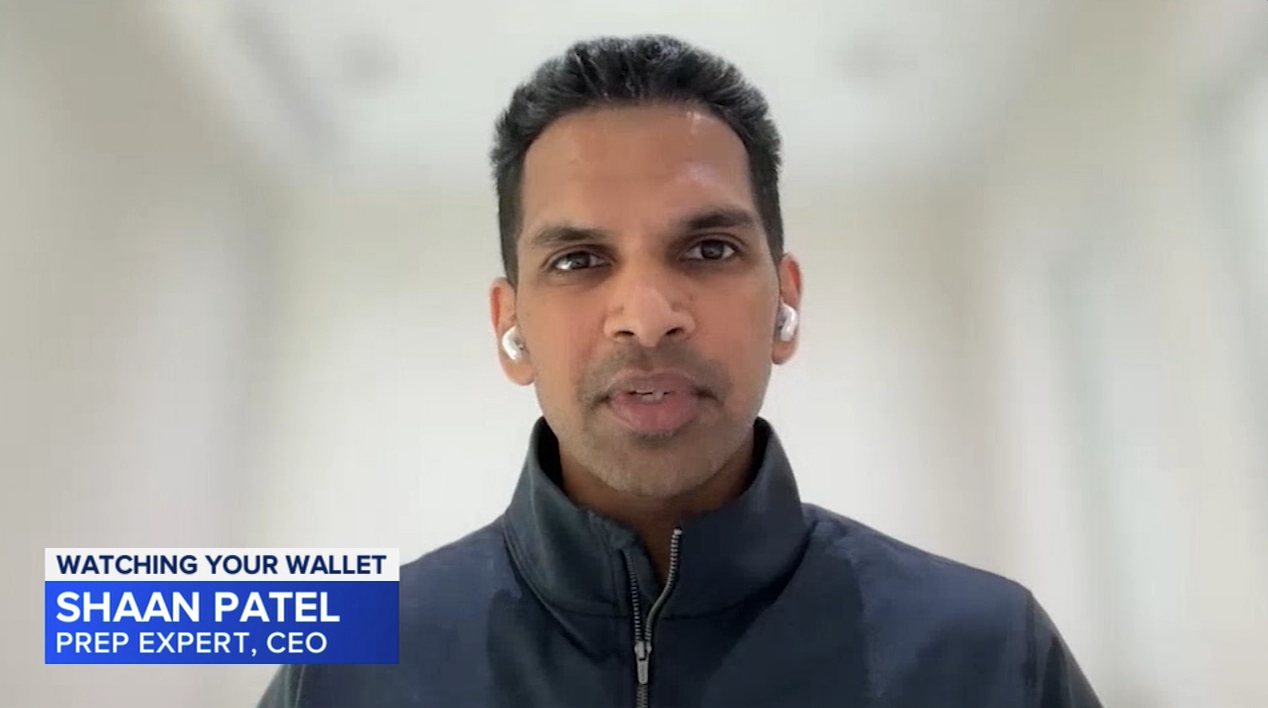Does Where You Go To College Matter?

For students starting the college search, thinking about where to go to school can be a truly daunting task. After a while, every brochure looks the same: smiling faces, a sunny day on the quad, engaged students, and promises upon promises of extracurriculars and opportunities. Sometimes it feels like everything just starts to blur together, and eventually, many start wondering about whether or not it really matters where you go. After all, don’t most jobs just want a degree, regardless of where it comes from?
The truth is, though, it does matter where you go to school. It matters a lot. The right college choice can open doors, while the wrong choice can halt you in your tracks. I’ve seen it plenty of times, and I want you to be able to have that choice. Today, I’d like to share some key insights about why your college choices truly matter.
The Prestige Factor: Why Selective Schools Hold Weight
When I founded Prep Expert®, it was only my eyes were opened to what selective schools have to offer– and what they don’t. Institutions like Harvard, Stanford, and MIT didn’t build their reputations overnight. They’ve earned global recognition not just because of academic excellence, but because of the networks, resources, and long-term support they provide. Attending a highly selective school can open doors to elite internships and top-tier job opportunities. In certain industries, like finance and law, these schools are pipelines to coveted positions.
One of the most talked-about advantages of selective colleges is their alumni networks. These networks can offer a powerful blend of mentorship and ongoing career connections that might be difficult to find elsewhere. It’s not just about who you know; it’s about who is willing to open a door for you because you share an alma mater. For students aiming for highly competitive career tracks or graduate programs, that kind of access can be invaluable.
Additionally, selective colleges often have significant financial resources. Many offer generous need-based aid. For example, Harvard and MIT just dropped tuition requirements for students whose families earn under $200,000, making them more accessible to those who truly deserve a place there. These schools also often offer significant funding for undergraduate research, study abroad programs, and even travel grants to attend conferences. For a student with clear academic goals or a drive to explore the world through their education, these perks can make a tangible difference in both experience and outcome.
The Hidden Value of Less-Selective Schools
But here’s the thing: prestige isn’t everything. Students who target selective schools just for the brand name may find that the school is actually a bad fit. The best college isn’t always the most selective! It’s the college that fits your goals, financial situation, and learning style. Large state universities and smaller liberal arts colleges can provide transformative experiences and opportunities that can lead you to your dream career.
Public universities often have strong ties to their local economies and industries, offering students valuable hands-on opportunities through internships and cooperative education programs. These schools may not have the brand recognition of an Ivy, but they frequently provide access to real-world experience that can lead directly to employment. And for many fields, like engineering, state schools like Purdue have plenty of name recognition.
Smaller colleges can also offer more individualized attention. Students are less likely to get lost in a crowd, and relationships with professors can lead to meaningful mentorship. In some cases, undergraduates have greater access to research opportunities, since there’s less competition from graduate students. These experiences, especially opportunities like conducting a field study, publishing in a journal, or even leading research, will truly help your resume stand out.
Beyond the Classroom: The Real College Experience
Another thing you can’t overlook about where you go to college is how you use the time while you’re there and what your non-classroom opportunities are. College is not only about lectures and grades. It’s about growing into yourself, exploring interests, and building a toolkit for the future. Some of the most influential parts of a college education happen outside the classroom.
Think about internships. Many students land their first full-time job because of an internship they did in college, not because of the name on their degree. And many times, that internship comes about through opportunities originating with the school. Some schools have robust career centers and built-in internship programs, while others require a more proactive approach. Either way, students who actively seek these out often find themselves ahead when graduation rolls around.
Leadership roles in student organizations, volunteer work, campus jobs, or collaborative projects all contribute to personal and professional growth. Participation in these activities often teaches skills that employers care deeply about, like communication, project management, adaptability, and teamwork.
Study abroad programs, too, can broaden your worldview and develop your independence, even if your college isn’t ranked in the top 20. Research has shown that global learning experiences enhance problem-solving skills and cultural awareness, which are two traits increasingly valued in a global workforce.
The Myth of the “One Right Choice”
There’s a pervasive myth that there’s one “perfect” college out there, and if you don’t get in, or choose not to go, you’ve missed your shot. But most graduates will tell you that the path is rarely so linear. College is a launchpad, not a lifetime guarantee. Success depends more on your initiative, choices, and resilience than the school’s acceptance rate. The name might open the door, but you have to walk through it.
What you study, the effort you put into your work, and the opportunities you chase matter more than your college’s name. Even in graduate admissions, where name recognition and faculty affiliation often does play a role, what frequently stands out are academic performance, research involvement, and letters of recommendation. A student from a lesser-known college with a clear sense of purpose, a strong portfolio, and meaningful experience can absolutely outshine someone from a top-tier school who coasted through.
In many ways, this reinforces the ideal of meritocracy: that achievement and potential should carry more weight than prestige alone. When admissions committees look beyond the institution’s name and focus on what an applicant has actually accomplished, they help level the playing field and reward true effort and ability.
What Really Counts in the Long Run
There’s research to support the idea that the college you attend has less impact on long-term earnings than you might think. In fact, a landmark study by economists Stacy Dale and Alan Krueger found that for students of similar academic ability, attending a highly selective school didn’t necessarily lead to higher earnings than attending a less selective one. The key variable was not the name of the school: it was the drive and ambition of the student.
In other words? It’s on you. You have the power to shape your own future. College is a huge, important step, but it can only ever be what you make of it. That being said, for first-generation college students or students from underserved communities, gaining access to elite institutions can be a powerful catalyst. The opportunities and support systems offered can make a world of difference. For others, the nurturing environment and accessibility of a smaller college may be just what they need to thrive. Ultimately, the best college is the one that helps you grow, supports your goals, and sets you up to succeed, not someone else’s idea of what success looks like.
And that’s why the admissions process and planning is so important. When you know why you want to go to college and what you need to get out of the school, you can make smarter, more intentional choices about the schools you apply to and the way you present yourself on your application. Preparation isn’t just about meeting requirements; it’s about positioning yourself to take full advantage of the opportunities ahead.
Today, that includes standardized testing. While many schools went test-optional in recent years, a growing number are now reinstating SAT and ACT requirements. These tests still play a role in admissions decisions and scholarship eligibility, especially at selective institutions. Scoring high on the SAT or ACT can help your application stand out, even if your GPA isn’t perfect or your high school doesn’t offer a lot of advanced coursework. It’s one of the few parts of your application that allows you to show what you can do on a level playing field.
That’s not to say your test score defines you. But putting in the time to prepare, learning strategies, and practicing regularly can absolutely make a difference. It’s a chance to show schools that you’re serious, disciplined, and ready to put in the work. More importantly, it’s an investment in yourself. The confidence you build through preparation and persistence doesn’t just help with admissions. It sticks with you long after you get your acceptance letter.
The truth is, every part of the college journey matters: where you apply, how you apply, and what you do once you’re there. But none of it is out of your reach. The process may feel daunting at times, but it’s also an exciting opportunity to define your path on your own terms.
Making the Most of Wherever You Go
So, does it really matter where you go to college?
Yes…but it doesn’t mean everything.
College will shape your worldview, expand your network, and offer stepping stones toward your future. But remember: prestige alone doesn’t guarantee success. What matters most is how you engage with your college experience, the opportunities you pursue, and how you grow along the way. And that means you need to set yourself apart so that you can go where you’ll flourish.
As you make these important choices, you need to set yourself up for success, and here at Prep Expert®, we help support students like you with their goals. When you take a standardized test prep course with us, you don’t just get the strategies you need to ace the test; you get the personalized support from top 1% instructors who know this journey inside and out. Explore our SAT prep course and ACT prep course catalogs today and see how we can help you unlock your full potential!
Written by Dr. Shaan Patel MD MBA
Prep Expert Founder & CEO
Shark Tank Winner, Perfect SAT Scorer, Dermatologist, & #1 Bestselling AuthorMore from Dr. Shaan Patel MD MBA

Ivy League Applications: What Sets A Student Apart
Every year, tens of thousands of students apply to Ivy League schools. Only a small fraction receive an offer of…

The Student Loan Rules Just Changed—And Most Families Aren’t Ready
By Dr. Shaan Patel, CEO & Founder of Prep Expert® Student loans have always been complicated. But starting in…

Confidence Is the Hidden Score Booster No One Talks About
Most students think SAT® and ACT® success comes down to knowing more math formulas or grammar rules. That’s only half…